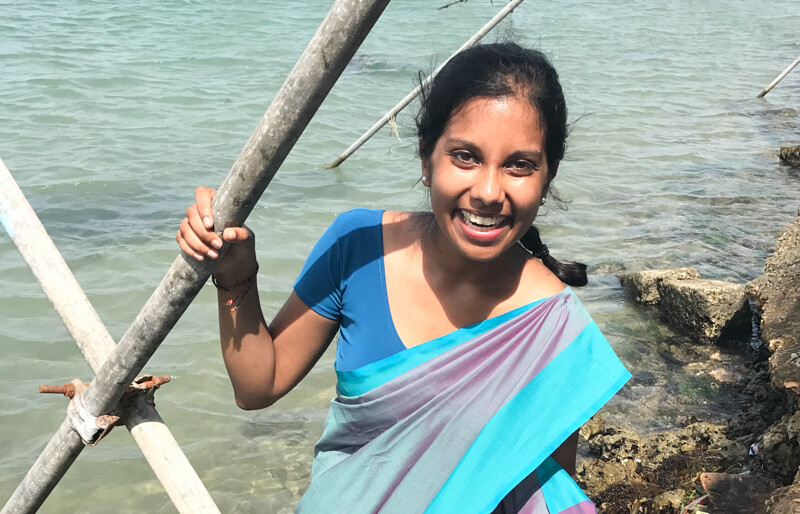Mobile Menu
-
MD Program
- Curriculum
- Interprofessional education
- MD Plus: Combined & Dual Degree Programs
- Academies
- Policies and Procedures
- Teaching in the MD Program
- Affiliated programs
- CACMS Accreditation
- Admissions
-
Student Resources
- Office of Learner Affairs (OLA)
- Community of Support
- Summer Mentorship Program
- Student Mistreatment
- Academic Calendar
- Incoming Students
- Resources for Indigenous Students
- Registration Requirements & Requests
- Research Opportunities
- Graduation & Alumni
- Student Tools & e-Resources
- Finances & Awards
- Student Assistance
- School Absences
- About Us
- MD/PhD Program

 When I was applying to U of T, I remember browsing the Faculty’s website and finding a list of potential summer research opportunities available to medical students. One of those was a placement at a hospital less than 10 kilometres away from my father’s home village in Sri Lanka. As a child growing up in Waterloo, Ontario, I had mostly shied away from getting to know my Sri Lankan heritage. But something inside me wanted to explore it now. This summer, I found myself on a plane to Colombo, excited to collect data as part of a global health study on therapies and complications in Sri Lankan patients with thalassemia — an inherited blood disorder that causes the body to make an abnormal form of hemoglobin, a protein that carries oxygen in the blood. Patients with this disorder often need regular blood transfusions and can also experience cardiovascular complications, diabetes and other serious endocrine disorders.
When I was applying to U of T, I remember browsing the Faculty’s website and finding a list of potential summer research opportunities available to medical students. One of those was a placement at a hospital less than 10 kilometres away from my father’s home village in Sri Lanka. As a child growing up in Waterloo, Ontario, I had mostly shied away from getting to know my Sri Lankan heritage. But something inside me wanted to explore it now. This summer, I found myself on a plane to Colombo, excited to collect data as part of a global health study on therapies and complications in Sri Lankan patients with thalassemia — an inherited blood disorder that causes the body to make an abnormal form of hemoglobin, a protein that carries oxygen in the blood. Patients with this disorder often need regular blood transfusions and can also experience cardiovascular complications, diabetes and other serious endocrine disorders.